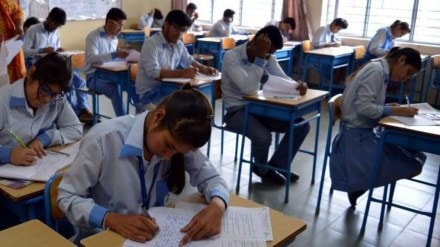The Jammu and Kashmir Fee Fixation and Regulation Committee (FFRC) has urged private schools in the Union Territory (UTs) not to charge excess of the panel-sanctioned amount even if they have obtained a stay from the high court.
According to Muzaffar Hussain Attar, FFRC chairman justice (retired), a few school managements had got stay orders from the high court against the implementation of the committee-approved fee structure for their institutions and were now charging fees as per their wish.
“The question of public and legal importance arises when the hon’ble (high) court stays the fee regulation order of FFRC, can a school be permitted to charge and collect the fee which it has fixed itself and which in view of the mandate of the judgements of the Hon’ble Supreme Court and high court and statute, is impermissible? Can such schools charge and collect such fee from the students?” Justice Attar said in an eight-page order clarifying the FFRC’s stand on ‘Legal position in respect of charging of fee by private schools’.
“The answer in law is that such types of schools have no authority in law to charge and collect fees fixed by themselves,” he said.
Attar further added that the High Court of Jammu and Kashmir and Ladakh, in its judgement on June 1, 2015, gave the liberty to managements of unaided private schools to approach the committee to fix the fee structure for each standard. Furthermore, it also provided that till the committee fixes a new fee structure, the management shall collect all types of fees as on August 2014.
“The hon’ble Supreme Court has mandated that each educational institute must place before the committee, well in advance of the academic year, its proposed fee structure. It is also mandated that the committee will be at liberty to approve the fee structure or propose some other fee which can be charged by the institute.
“The latest judgement of the Hon’ble Supreme Court has also ruled that the government can provide for an external regulatory mechanism for determination of school fee or for fixation of just and permissible school fee at the initial stage itself,” he added.
In most cases, in which the high court has stayed the FFRC’s fee-regulation order, the schools had approached the committee for the first time.
“In these schools, in view of non-submission of proposed fee structure and record to FFRC previously, the fee was not determined and regulated by FFRC in respect of previous academic sessions. In violation of judgments of the Supreme Court and the High Court of Jammu and Kashmir and Ladakh, and mandate of the law, such schools have fixed the fee structure themselves,” he observed.
With inputs from PTI.
Also Read: HC sets aside reappointment of Calcutta University vice chancellor
